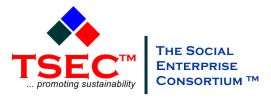Social capital, defined as the networks, relationships, and norms of trust and reciprocity within a society, is increasingly being recognized as a critical driver of economic and social development. In Nigeria, a country characterized by diverse ethnicities, cultures, and socio-economic disparities, harnessing social capital presents immense opportunities for promoting inclusive growth and sustainable development.
Building Trust and Cooperation
At the heart of social capital lies trust and cooperation among individuals and communities. By fostering trust-based relationships and collaboration, social capital enables people to work together towards common goals, leading to greater efficiency, innovation, and resilience in the face of challenges. In Nigeria, where social cohesion is essential for national unity and stability, leveraging social capital can help bridge ethnic, religious, and regional divides, promoting peace and social harmony.
Promoting Civic Engagement and Participation
Social capital empowers citizens to participate actively in civic and community life, fostering democratic governance and inclusive decision-making processes. Through community-based organizations, grassroots initiatives, and social movements, social capital enhances citizen engagement, accountability, and transparency in public affairs. In Nigeria, where citizen participation is crucial for democratic consolidation and effective governance, harnessing social capital can strengthen democratic institutions and promote sustainable development.
Facilitating Information Sharing and Knowledge Exchange
Social capital facilitates the flow of information, knowledge, and resources within and across networks, enabling individuals and communities to access valuable resources and opportunities. By leveraging social networks and informal channels of communication, social capital enhances information sharing, learning, and innovation, driving economic growth and social progress. In Nigeria, where access to information and education is essential for human development and poverty reduction, harnessing social capital can promote knowledge exchange, skill development, and entrepreneurship, particularly among marginalized groups.
Building Social Resilience and Adaptability
Social capital enhances resilience and adaptability in the face of social, economic, and environmental challenges. By strengthening social networks, fostering mutual support, and promoting collective action, social capital enables communities to cope with adversity, mitigate risks, and bounce back from crises. In Nigeria, where vulnerability to conflict, natural disasters, and economic shocks is prevalent, harnessing social capital can build resilience at the grassroots level, empowering communities to withstand shocks and pursue sustainable development pathways.
Promoting Inclusive Development and Social Justice
Social capital promotes inclusive development by ensuring that the benefits of growth are shared equitably among all segments of society. By fostering social inclusion, reducing inequalities, and promoting social justice, social capital enhances the well-being and prosperity of marginalized groups, including women, youth, and persons with disabilities. In Nigeria, where inequality and social exclusion remain pervasive, harnessing social capital can promote inclusive policies, empower marginalized communities, and advance human development goals.
Conclusion
Harnessing social capital for national development offers a promising pathway towards achieving inclusive growth, sustainable development, and social cohesion in Nigeria. By building trust and cooperation, promoting civic engagement and participation, facilitating information sharing and knowledge exchange, building social resilience and adaptability, and promoting inclusive development and social justice, social capital can unlock the potential of individuals and communities to drive positive change and transform Nigeria into a more prosperous and resilient nation. As Nigeria continues its journey towards sustainable development, leveraging social capital will be essential for building a more inclusive, equitable, and resilient society for future generations.

